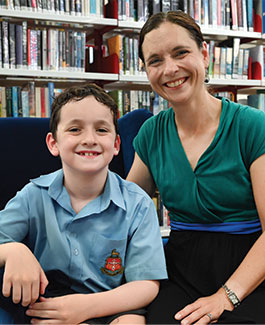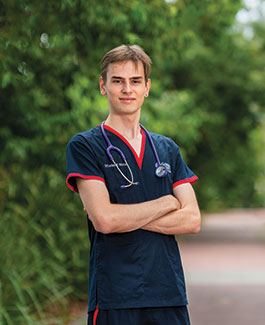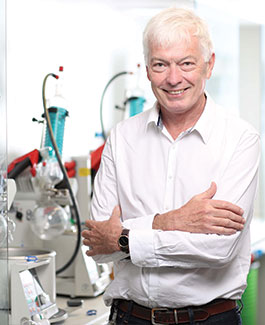Paving the way for a better future
Griffith University is paving the way for a better future for schizophrenia sufferers thanks to a donation from a private donor that led to Australian Government funding.
The Griffith Institute for Drug Discovery (GRIDD) has been awarded $1,425,156 to develop potential new drugs to treat schizophrenia using patient-derived stem cells. Using stem cells from nasal biopsies of people with schizophrenia, researchers are hoping to discover potential new therapies for this debilitating disease.
Finding a common molecular pathway linked to disease may help solve the riddle of why people with schizophrenia may not share the same mutations in risk genes.
Dr Alex Cristino
This innovative research became possible due to the generous donations of an anonymous private donor, and provided important findings that led to a successful grant from the Australian Government through the Medical Research Future Fund (MRFF).
Schizophrenia is a lifelong condition first diagnosed in early adulthood, costing the Australian Government about $1.44 billion and the general community $2.25 billion annually.
The few medications available for the disease are decades old and often come with severe side effects.
“This study represents a paradigm shift for drug discovery,” says lead researcher Dr Alex Cristino from GRIDD. The team is using a unique stem cell model pioneered by the 2017 Australian of the Year, the late Professor Emeritus Alan Mackay-Sim AM, paired with artificial intelligence (AI)-powered drug analysis to find the most suitable types of drugs to treat schizophrenia.
The researchers are analysing large amounts of olfactory nerve cell data including whole-genome expression profiles and have discovered a faulty gene signalling pathway in schizophrenia patient stem cells.
“Finding a common molecular pathway linked to disease may help solve the riddle of why people with schizophrenia may not share the same mutations in risk genes,” Alex explains. “Instead, it may be that in each patient a distinct combination of genetic variations associated with the disease fall within risk genes thus disrupting different parts of shared pathways that regulate the same cell functions.
“We will screen approximately 1,500 Food and United States Drug Administration (FDA) approved drugs—identified using AI—against patient stem cell lines, to find those that restore cellular functions back to normal and thus rescue schizophrenia cell signatures,” says Distinguished Professor Vicky Avery, head of GRIDD’s Discovery Biology laboratory.
Griffith University researchers are working with collaborators Professor Michael Berk and Professor Ken Walder from Deakin University.
More than $100 million of philanthropy has already been secured to create a brighter future for all.
Read more impact stories

Advancing outcomes for autistic children
As young parents, Elga and David Dyer had no idea what to expect with a newborn. Their journey to diagnosis and their lived experience with autism led to the development of a scholarship committed to training the next generation of autism researchers.

Opal HealthCare Nursing Scholarship
Scholarship recipient, Bodhi Thwaites has first-hand experience proving it isn’t just about alieving financial burdens, but providing a supportive environment and nurturing a passion, allowing him to reach his aspirations of becoming a mental health nurse.

Trialling a groundbreaking Strep A vaccine
A life-saving vaccine is one step closer with scientists at Griffith leading an international partnership to create a Strep A vaccine that effective against the bacteria’s many strains and its resistance to immunity, with human clinical trials underway.